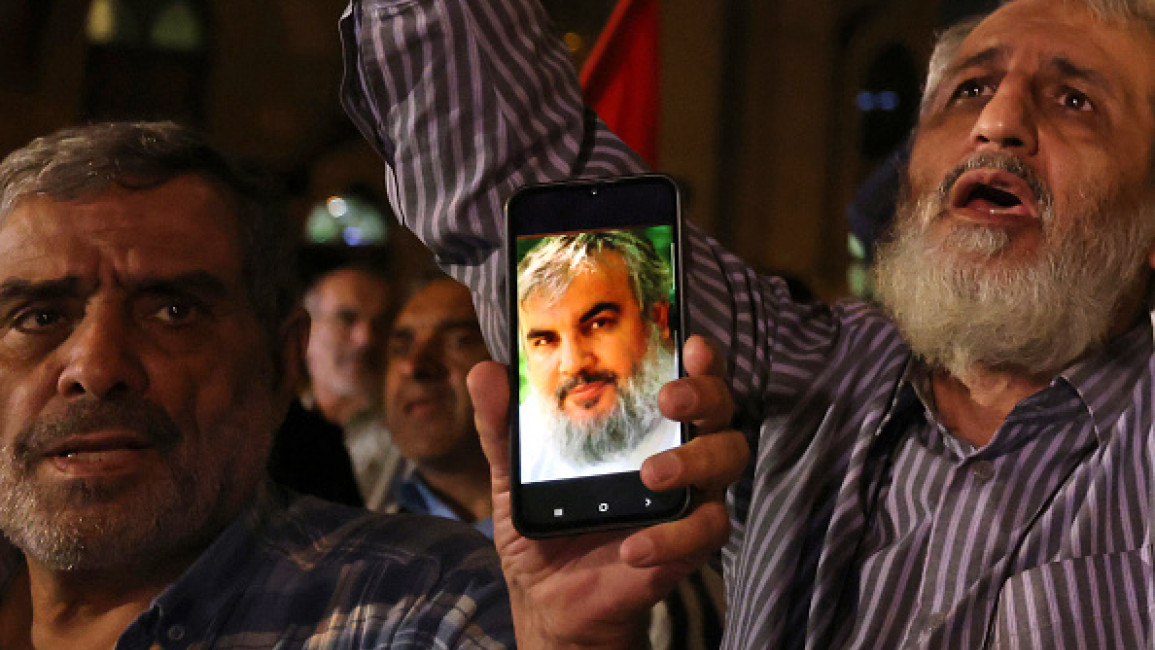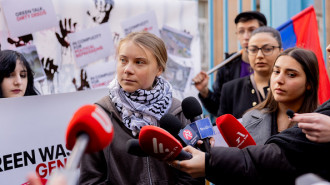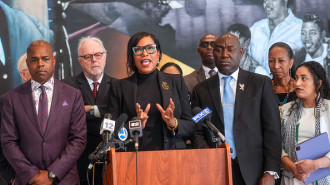Speculation over Hezbollah leader Nasrallah's fate after Israel bombs Beirut
Israel conducted a wave of air strikes on the south of Lebanon's capital Beirut on Friday, levelling several buildings in a densely populated neighbourhood.
The Israeli army said it had targeted Hezbollah's headquarters, sending huge clouds of smoke soaring above the area.
The strikes were heard across the Mediterranean city, and sparked panic in the residential area.
They were by far the fiercest strikes to hit Beirut since Israel increased attacks on Lebanon this week, killing hundreds of people.
Israeli Prime Minister Benjamin Netanyahu vowed in an address to world leaders on Friday that there would be no-let up in the battle against Hezbollah until Israel's northern border was secured.
"Oh my God, what strikes. I felt like the building was going to collapse on top of me," said Abir Hammoud, a teacher in her 40s who lives in the southern suburbs of Beirut.
Ahmad Ahmad, in his 60s, said he fled his house in the southern suburbs after the strikes, which he said felt "like an earthquake".
A source close to Hezbollah said the strikes levelled six buildings, and according to a preliminary toll, two people were killed and 76 wounded.
Israeli military spokesman Daniel Hagari said the strike targeted "the central headquarters" of Hezbollah in the southern suburbs of the city.
Israeli television networks reported that Hezbollah chief Hassan Nasrallah was the target of the strike, though the source close to Hezbollah said he was "fine".
Israeli media reports claimed that an Israeli army assessment had concluded that Nasrallah was likely killed.
A statement released by Hezbollah said there was "no truth" to Israeli reports about the attacks on Lebanon, without reference to particular claims.
Nasrallah enjoys cult status among his Shia Muslim supporters, is equipped with a formidable arsenal far bigger and more modern than the national army's, and holds sway over Lebanon's institutions.
He has rarely been seen in public since his movement fought a devastating 2006 war with Israel, living in hiding to avoid assassination.
The bombing came moments after Netanyahu concluded his address to UN General Assembly delegates in New York, in which he vowed to keep up strikes against Hezbollah and fight "until victory" against Hamas.
Earlier this month, Netanyahu said Israel would fight Hezbollah until thousands of Israelis displaced by nearly a year of cross-border fighting could return to their homes.
"As long as Hezbollah chooses the path of war, Israel has no choice, and Israel has every right to remove this threat and return our citizens to their home safe," Netanyahu told the UN General Assembly, adding that operations against the Iran-backed militant group will "continue until we meet our objectives."
After the Beirut strikes, Hezbollah said it had fired more rockets into Israel "in defence of Lebanon and its people".
The Israeli military said a Hezbollah rocket had hit a house and a car in the northern city of Safed but there were no immediate reports of casualties.







 Follow the Middle East's top stories in English at The New Arab on Google News
Follow the Middle East's top stories in English at The New Arab on Google News


